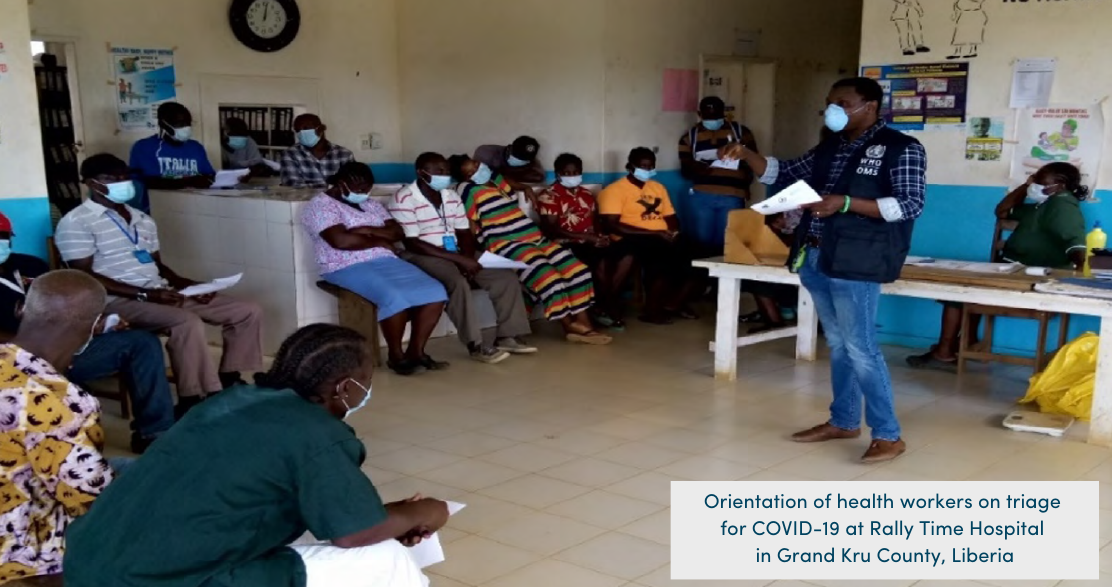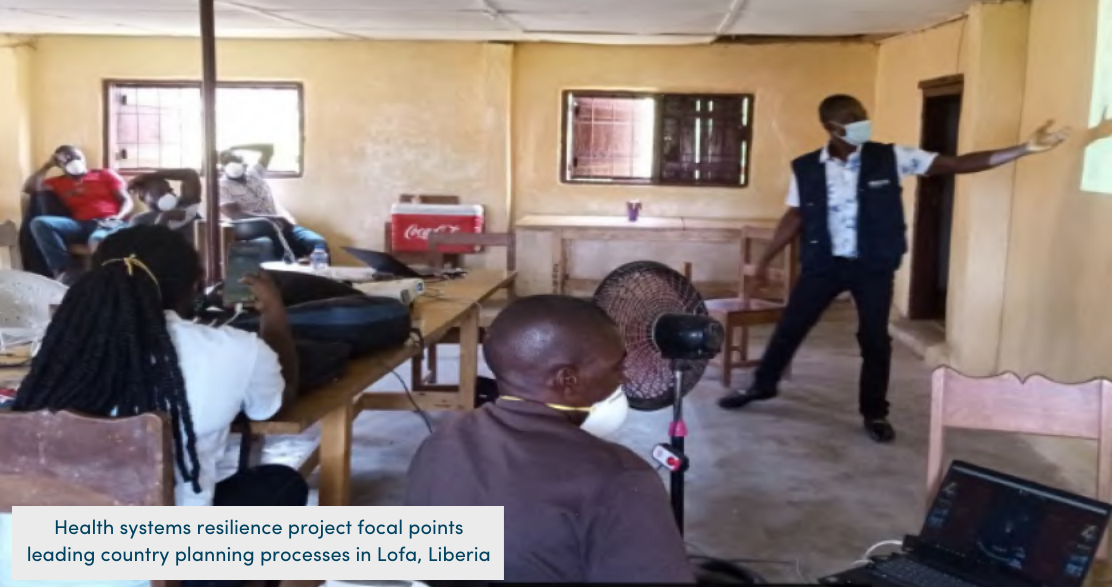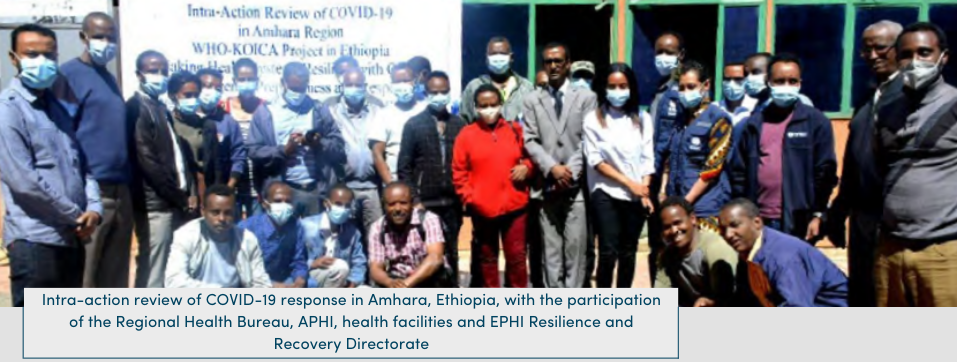Operationalizing health systems resilience through a multi-year initiative in Liberia and Ethiopia
Author
Moses Bolongei1, Louis Ako-Egbe1, Abiy Girmay2, Sohel Saikat3, Redda Seifeldin3, Saqif Mustafa3
Author affiliations:
1. WHO Liberia Country Office
2. WHO Ethiopia Country Office
3. WHO headquarters
The authors developed this case study in the context of a multi-year project on building health systems resilience, funded by the Korea International Cooperation Agency (KOICA), to whom they are grateful for their support and partnership with WHO.
Country
Ethiopia, Liberia
Background
Lessons from public health emergencies commonly highlight the need for an integrated approach to health systems strengthening as a requirement for building resilience. WHO, through its three levels and in collaboration with the ministries of health and national public health institutes of Liberia and Ethiopia, set out to apply this lesson through a health systems resilience project in the two countries, running for five years from 2018 to 2023. This country snapshot provides insights on how this initiative translated the concept of resilience into integrated front-line operations for impact. It highlights how it supported the maintenance and recovery of essential health services at national and subnational levels during and beyond the acute phase of the COVID-19 pandemic.
Approach
To guide implementation of this ongoing project, a defined package of support was developed with clear accountability mechanisms. Joint working was established between the health authorities and the technical teams responsible for health systems strengthening
and service delivery (at each ministry of health) and those responsible for health security (national public health institute), with animal health sector and private sector collaborations at all administrative levels adopting a One Health approach.
Delivery of the package of support involved activities such as training, risk profiling, preparing for and responding to emergencies and planning for health service continuity, simulation exercises, post-emergency evaluations, and the establishment
of governance and coordination fora. The integrated approach applied in delivering these interlinked activities ensured that each activity drew on the interconnected inputs of all the health system building blocks with multisectoral participation,
while enabling the required synergies between emergency management and health systems strengthening at all administrative and service delivery levels.

Impact
The impact of the initiative and the activities conducted soon became evident when health services in the two countries had to face the COVID-19 pandemic. The experiences and lessons learned from this initiative informed better alignment between health systems strengthening and health security in policy, planning, implementation and monitoring and evaluation, for building and sustaining health systems resilience in both countries.
Examples include the establishment of an institutional focus on health system resilience in the Ethiopian Public Health Institute and adopting resilience-focused activities in national public health activities planning, Public Health Emergency Management guidelines as well as the identification of essential health service continuity as a priority, with clear representation of health system and services focused teams in the COVID-19 incident management structure. National universities in Ethiopia have also embedded the concept and application of health systems resilience in their pre-service and advanced degree programmes for health professionals, based on the training package from this initiative.

In Liberia, the concept of resilience is being institutionalized as a course in preservice and continuous professional development for health professionals and incorporated into health facility quality and accreditation standards. Health systems resilience simulation exercises informed countrywide annual health sector operational planning in Liberia, and national authorities are embarking on developing guidance on planning for health service continuity in emergency contexts. The project also supported the development of key national health policies and strategic plans including a national quality policy and strategy, and leveraged digitalization to institutionalize learning on quality for front line health workers.
These initiatives and related learnings are especially timely considering many countries are transitioning from the acute phase of the pandemic with increased political impetus on health services and systems recovery and building more resilient health systems. The lessons from the country practices can be adapted to other contexts as part of efforts to progress towards universal health coverage and health security as interdependent objectives.



